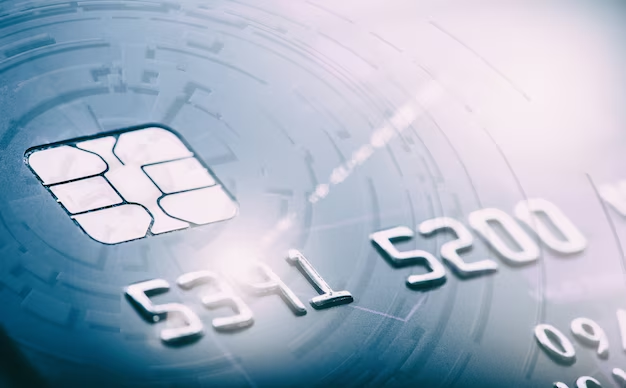What to Do When Your Credit Card is Lost or Stolen: A Complete Guide
Losing your credit card or having it stolen can be a daunting experience. Amidst the chaos, it's easy to worry about potential identity theft, unauthorized transactions, and the resulting impact on your credit score. However, understanding the steps to take and acting swiftly can help you regain control and protect your finances. This guide will walk you through everything you need to know about reporting a lost or stolen credit card, minimizing risks, and ensuring your financial security.
Initial Steps: Acting Fast to Secure Your Account
🚨 Immediate Actions to Take
Losing a credit card might feel like the beginning of a long nightmare, but acting quickly can significantly mitigate potential damage. Here’s what you need to do first:
Contact Your Credit Card Issuer: The primary step is to call your credit card company immediately. Use the emergency phone number typically found on the issuer’s website. Most companies offer toll-free numbers and 24/7 customer service for emergencies like these.
Freeze Your Account: Some credit card issuers provide the option to temporarily lock or freeze your card through mobile apps. This feature prevents unauthorized charges while you assess the situation.
Review Recent Transactions: Go through the latest statements or online transactions to identify any unauthorized activities. Reporting these promptly can help resolve disputes quicker.
🔏 How to Contact Your Card Issuer
When calling your issuer, be prepared to provide necessary identification details such as your Social Security number, date of birth, and any recent transactions. This information helps the representative verify your identity and process your request efficiently.
Understanding the Process: What Happens Next?
📨 Fraud Investigation and Resolution
Once you've reported your card lost or stolen, the issuer will likely carry out the following steps:
Issue a Replacement Card: After safeguarding your account, the company should send you a new card with a different number, often within a few business days.
Monitor for Fraud: The issuer will keep an eye on your account activity for any signs of fraud. They might request your help to verify transactions.
Dispute Resolution: If any unauthorized payments have been made, you'll need to work with the bank's fraud department to resolve these. Typically, you aren't held responsible for fraudulent charges if reported promptly.
📊 Impact on Your Credit Score
Replacing a lost or stolen card shouldn't directly affect your credit score. However, be proactive about monitoring your credit reports, as fraudulent charges can sometimes slip through and impact your credit if not handled correctly.
Preventing Future Risks: Smart Strategies
🔒 Enhancing Card Security
Being proactive with these common-sense steps can fortify your defenses against future card loss or theft:
Use Mobile Alerts: Most banks offer the option to set up alerts for any unusual transactions or thresholds. This keeps you informed of suspicious activities in real time.
Switch to Contactless Payments: Using digital wallets or contactless payments can often be more secure. These systems use encryption and tokenization, adding a layer of protection to your transactions.
Safeguard Your PIN: Ensure that you don't share your PIN with anyone and avoid using easily guessed numbers.
🏠 Organize Personal Information
It's crucial to maintain a secure record (either digitally or in a secure location) of all your card details and relevant contact numbers for quick access in emergencies. Here’s a concise checklist:
- Account numbers
- Issuer contact information
- Recent transaction records
Navigating Lost Card Scenarios Abroad
🌍 International Considerations
Losing a credit card overseas can complicate matters due to different time zones, language barriers, and access constraints. Here are tailored tips for card loss while traveling:
Know Your Bank's International Support: Familiarize yourself with your issuer's international hotlines before traveling.
Consider Travel Insurance: Some policies cover expenses related to replacing lost or stolen items, including credit cards.
Have a Backup Plan: Carry an alternative payment method to avoid being stranded without access to funds.
Summary of Key Steps and Tips
Here’s a quick reference guide to remember if you ever lose your credit card or it gets stolen:
- 📞 Immediate Contact: Call your issuer without delay.
- 🔍 Monitor Transactions: Check for and report unauthorized charges.
- 🚫 Freeze Accounts: Utilize mobile apps to temporarily disable your card.
- 🔐 Strengthen Security: Use digital wallets and enable transaction alerts.
- 🚑 Know Emergency Numbers: Keep issuer contact info accessible, even when traveling.
Reflecting on Financial Security
Recovering from a lost or stolen card experience can be challenging but manageable with the right approach. Being proactive, understanding the processes in place, and using available security features can all help protect your financial wellbeing. As you continue your journey towards maintaining financial security, staying informed and prepared remains an essential part of safeguarding your assets against potential threats.

Related Topics
- A Beginners Guide To Investing In Gold And Other Precious Metals On a Budget
- A Comprehensive Guide To Bridge Loans: How They Can Be Helpful For Lower Income Americans
- A Comprehensive Guide: Growth Stocks Versus Value Stocks
- A Comprehensive Guide: The Impact Of Bankruptcy On Homeownership And Mortgage Options
- A Guide For Lower-Income Americans: Making Your Savings Last A Lifetime
- A Guide: Understanding Different Types Of Bank Accounts
- A Guided Journey: Applying For a Mortgage Through Your Bank
- A Helping Hand: Government Assistance Programs For First-Time Home Buyers
- A Practical Guide: Understanding And Reducing Your Property Tax Assessment
- A Simple Guide To Rent-to-Own Home Contracts For Lower-Income Americans
